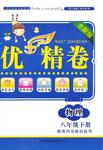题目内容
完形填空
阅读下面短文,从短文后各题所给的四个选项(A、B、C和D)中,选出可填入空白处的最佳选项,并在答题卡上将该项涂黑。
Samuel was back at the bookshop. He had only one goal in mind---to find a book that he had not _________ the previous day. The book was one of the seven that he had __________ to buy. But at the last moment, he changed his ________. He put all seven back on the shelf.
Samuel had a personal _________ at home with over 1,000 books--- almost all unread. He had more reading material in his small ___________ than he could finish in two lifetimes, yet his __________ for more remained burning. He finally __________put his foot down. “Not one more book”, he told himself, “____________it was really special.” In fact, yesterday's book fit the bill. It was a biography of one of his favorite authors----Stephen King, one of America's most ________ fiction authors. But it wasn’t ____________ for King himself---early in his ____________, he got hundreds of rejection(退稿) notices. Samuel wanted to be a great __________ and King was his role model.
Samuel immediately___________ one of the books he had piled up yesterday, and in minutes, he found all except one--- the Stephen King book. “What a ____________!” he thought, “The one that I want to find is the one that I can't find”
Samuel took a walk __________the shop, knowing that people often pick up something in one place and then leave it in another. The book was a thick paperback with a red cover. But it was _________ to be found.
So for Samuel, the big ____________ was on. Every bookshop he went to would involve a search for the King book. This new search added the ___________ to his bookshop life.
Samuel had held something special in his hands. But only when he ____________ did he realize its value. When he found it again, it would _________ be his favorite book that he never got around to reading.
1.A. found B. bought C. missed D. ordered
2.A. got B. asked C. refused D. intended
3.A. habit B. attitude C. mind D. emotion
4.A. relationship B. computer C. library D. choice
5.A. office B. apartment C. bed D. desk
6.A. house B. plan C. stove D. thirst
7.A. decided B. offered C. hoped D. agreed
8.A. because B. unless C. when D. if
9.A. popular B. qualified C. traditional D. unsuccessful
10.A. important B. terrible C. tiring D. easy
11.A. childhood B. calendar C. career D. creation
12.A. writer B. collector C. thinker D. reader
13.A. took B. spotted C. selected D. ignored
14.A. deal B. book C. joke D. pity
15.A. into B. outside C. towards D. throughout
16.A. nowhere B. somewhere C. anywhere D. everywhere
17.A. inspiration B. shopping C. hunt D. walk
18.A. goal B. curiosity C. pressure D. money
19.A. think it overB. got it through C. finished it off D. let it go
20.A. formally B. certainly C. possibly D. generally
 优加精卷系列答案
优加精卷系列答案

 ),并在其下面写出该加的词。
),并在其下面写出该加的词。